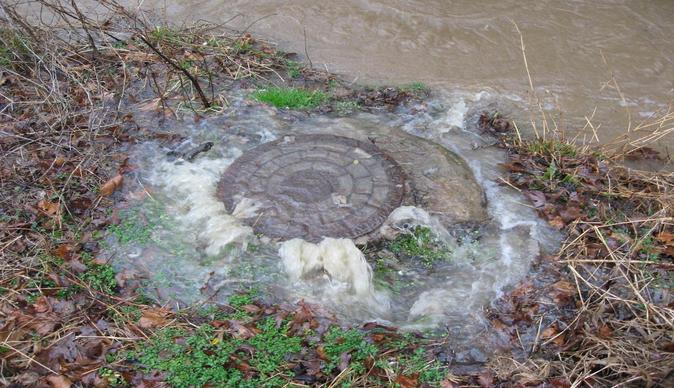The Bulawayo City Council (BCC) says they are constantly retrieving items such as television sets and broken down furniture inside sewer manholes, which lead to frequent blockages and sewer pipe bursts.
Council also said it is losing manhole lids, which are stolen and reportedly melted and molded into cast iron pots.
One of the BCC civil engineers, Faith Nkonde, said council was having a tough time fixing the burst pipes.
The council is carrying out sewerage treatment works at the Southern Areas Sewage Treatment works (SAST).
“For the SAST project we have two lines coming from Emganwini and Pumula. Currently we are working on the Pumula line that is 675 metres. This has become one of the sewer hotspots and one of the many different hotspots that we have to unclog,” she said during a tour of the Bulawayo and Sewerage Services Improvement Projects (BWSSIP) last week.
Nkode noted that residents were responsible for the sewer pipe bursts in the city.
“As you can see we had to clear sand from the pipeline. We can talk of old infrastructure that has to be replaced and rehabilitated but people are also at fault,” she said pointing at the heap of sand that was extracted.
The engineer claimed a lot of clutter was found inside the pipeline such as used diapers, while in some parts of the pipeline, the manholes had been vandalised.
“Sometimes, the rain comes with sand but more often it us residents who are the cause of our sewer problems. You should have seen what came out from this pipeline and some of you would not believe it. Imagine retrieving a television set inside a man hole meaning someone threw inside,” she said.
“People are also mischievous, as they open the manhole and dump their litter. Others vandalise the manhole, remove the lids that are made up of cast iron. People use the material to make cast iron pots. This has become a serious concern nowadays, maybe its hunger – we don’t know but it is dangerous.”
Nkode urged city councillors to educate residents on how sewer systems works to avoid such in the future.
“Councillors and resident associations must tell people that we are trying to drain sewer to treatments plants to produce treated water but we can’t. Water can’t drain leading to hotspots where the pipes burst as there is no drainage due to all the sand and stones. Instead residents turn and say council is failing to service sewer systems properly,” said the engineer.
She also noted some residents deliberately blocked sewer pipes so they could divert the water in into their gardens.
Meanwhile, a contractor whose company provides consulting services to BCC, Zulu Mangani, said lack of electricity was also affecting normal pumping of water and effluent.
“If the pipes do not pump then we have a back-flow and that means the catchment area is also affected,” he highlighted.
Mangani added that another challenge was the acquisition of equipment, as there were delays caused by the Zimbabwe Revenue Authority (ZIMRA) at borders.
“Since we have an old system, the pipelines are made from old cement that is not found locally. The pipes were made using Sulphur resistant cement and this is imported from Botswana or South Africa. But the challenge is the importation process where delays occur at the border. Anyway the issue is sorted, we have engaged ZIMRA to speed up all processes that are required for this for the BWSSIP,” he said.

